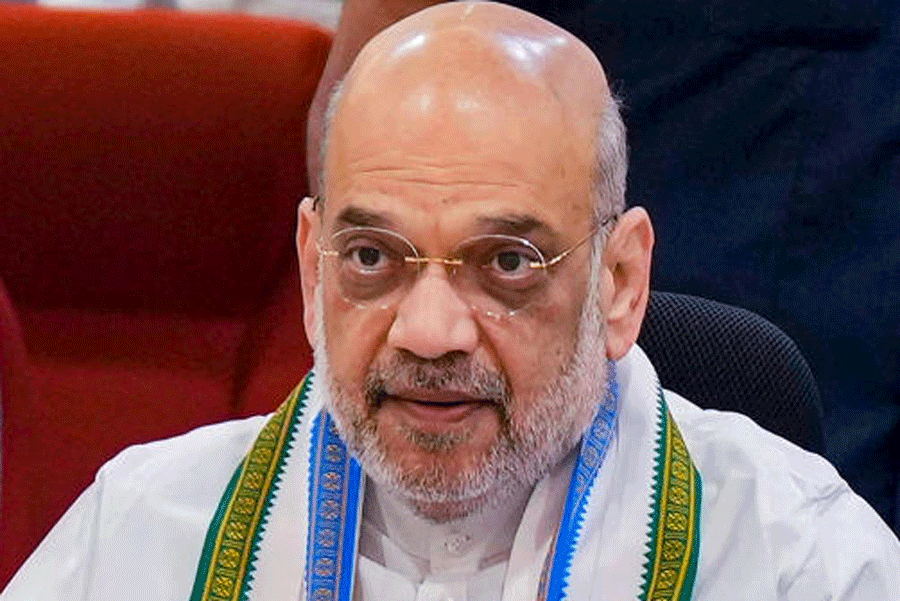India has decided to fence the entire mountainous 1,643km-long India-Myanmar border that runs along the northeastern states of Arunachal Pradesh, Nagaland, Manipur and Mizoram, Union home minister Amit Shah announced on Tuesday.
The decision is likely to end the free movement regime (FMR) that allows people residing on either side of the India-Myanmar border to enter 16km into each other’s territory without a visa and stay up to two weeks as many of them share ethnic ties.
The FMR has been in existence since British rule. It was formalised in 2018 as part of India's Act East policy, promoting cross-border movement up to 16km without a visa.
“The Modi government is committed to building impenetrable borders. It has decided to construct a fence along the entire 1,643-kilometer-long Indo-Myanmar border,” Shah said in a post on X.
He said that to facilitate better surveillance, a patrol track along the border would also be paved.
“Out of the total border length, a 10km stretch in Moreh, Manipur, has already been fenced. Furthermore, two pilot projects of fencing through a Hybrid Surveillance System (HSS) are under execution. They will fence a stretch of 1km each in Arunachal Pradesh and Manipur. Additionally, fence works covering approx 20km in Manipur have also been approved, and the work will start soon,” Shah said.
Last month, the minister had said India would fence the border along Myanmar to stop free movement and that the border with the neighbouring country would be protected like the Bangladesh frontier.
Recently, Mizoram chief minister Lalduhoma and Nagaland chief minister Neiphiu Rio had opposed any move to set up barbed wire fencing along the India-Myanmar border.
Lalduhoma had met Prime Minister Narendra Modi in Delhi last month and discussed issues related to the international border with Myanmar.
Lalduhoma had also met external affairs minister S. Jaishankar and said any move to set up barbed wire fencing along the India-Myanmar border would be “unacceptable”.
Sources said the decision to fence the entire Myanmar border was taken after the security establishment recently flagged how over 500 Myanmar Army soldiers had crossed into India in the last three months to escape ethnic cleansing. Sources said they took refuge in Mizoram after their camps were captured by Arakan Army (AA) militants — an ethnic armed group in the western Myanmar state of Rakhine.
“The 1,643km-long Myanmar border is porous and it leads to influx and free movement of rebels and cross-border smuggling,” said a security official.
There are also allegations that illegal immigrants from Myanmar are behind the ongoing ethnic violence that has engulfed Manipur since May 3, leaving at least 200 dead and over 67,000 displaced. Meitei-based organisations have alleged that firearms are being supplied to militants in Manipur from Myanmar.
Manipur shares a 398km-long border with Myanmar, of which only around 6km is fenced, sources said.
The Kuki-Zos of Manipur and Mizoram have opposed the move to fence the border because the Chins of Myanmar share the same Zo ancestry with the Mizos and the Kukis. The Kuki-Zo people blame the state government and the radical groups for the unrest.
An Intelligence Bureau official, however, said the decision to fence the entire rugged and densely forested border was a challenging task and would take years as it would not be like fencing the border with Bangladesh.
“Given all the mountains and rugged terrain along the border, it is next to impossible to fence the entire frontier. It is also going to destabilise the people-to-people contact that has existed for decades between the people in the border area,” he told The Telegraph.
Sources in the Union home ministry said talks were already on to start the tendering for an advanced smart fencing system for the entire India-Myanmar border.
“The fencing along the entire Myanmar border is likely to take at least four to five years. Once the fencing is completed, people coming through will have to get a visa,” said a ministry official.
Rakhine advisory
In view of the deteriorating security situation, disruption of means of telecommunications, including landlines, and severe scarcity of essential commodities, all Indian citizens are advised not to travel to the Rakhine State of Myanmar, India’s foreign ministry said on Tuesday.
Those Indian citizens who are already in Rakhine State are advised to leave immediately, it added.










